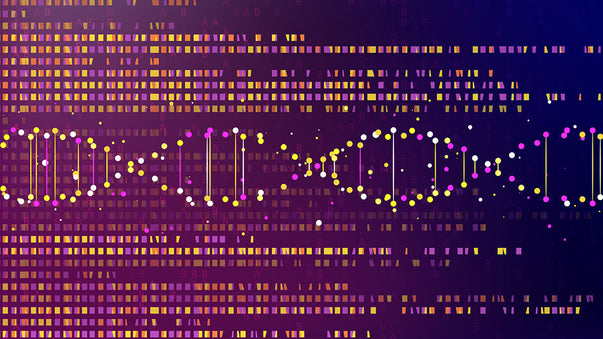CRISPR May Revolutionize World Health

Two patients have been cured of beta thalassemia and sickle cell disease, after their own genes were edited with CRISPR-Cas9 technology. This raises hopes for countless people all over the planet suffering from genetic diseases, and other diseases that may be open to genetic attacks. CRISPR-Cas9 technology pioneers Emmanuelle Charpentier and Jennifer Doudna received the Nobel Prize in Chemistry in 2020 as reported in Pulse 173.
Sickle cell disease is an inherited defect of hemoglobin, the iron-containing protein in red blood cells that carries oxygen to cells throughout the body. Beta thalassemia is a blood disorder that reduces the production of hemoglobin.
Sickle cell disease and beta thalassemia are major diseases in the world, notes a press release issued by University of Illinois Chicago (UIC). In Nigeria alone, five million people suffer from sickle cell disease. And many others suffer from this disease throughout Africa. 30% of transplants performed in India, which has 1.3 billion people, are to treat severe beta thalassemia.
A research paper published in New England Journal of Medicine describes how CRISPR-Cas9 gene editing modified the DNA of stem cells by deleting the gene BCL11A. This is the gene responsible for suppressing fetal hemoglobin production. The first two patients to receive the treatment have had successful results and continue to be monitored.
This gene-editing procedure has a huge potential, said Damiano Rondelli, Professor of Hematology at the UIC College of Medicine. “Cells of the same patient can be manipulated and can be transplanted without the risk of rejection or to cause immune reactions from the donor (graft-versus-host disease),” he said. “For the almost 900 patients with SC coming to our hospital, this should be great news.”
Rondelli is on the steering committee for an international clinical trial. The trial is at an early stage. And the first patients will be followed for some time before expanding the numbers worldwide.
This treatment could be a game-changer for world health. “The hope is that this treatment will be accessible and affordable in many low-middle-income countries [e.g. the Middle East, Africa, and India], and have an important impact in the lives of many people in these areas,” added Rondelli.
Personalized Vaccine for Anti-Cancer Response
Researchers at Dana-Farber Cancer Institute, Brigham and Women's Hospital, and Broad Institute have made advances in the development of a cancer vaccine. It is able to produce long-lasting anti-tumor responses in patients with melanoma.
A study is published in Nature Medicine. It reports that, four years after patients with melanoma were treated with a personalized cancer vaccine, the immune response kindled by the vaccine remains robust and effective in keeping cancer cells under control. The vaccine is known as NeoVax. It works by targeting specific proteins on each patient's tumor cells.
Four years after vaccination, all eight patients who participated in the study were alive. And six showed no signs of active disease. In two of the patients, cancer had spread to their lungs. They received an immune checkpoint inhibitor, a drug that loosens some of the restraints on the immune response to cancer.
The researchers are persuaded that NeoVax can help control metastatic tumors, particularly when combined with immune checkpoint inhibition.
Designer DNA May Treat Myeloma
Scientists at UC San Diego School and Ionis Pharmaceuticals are researching how to treat myeloma. This is a type of blood cancer that eventually becomes resistant to existing treatments. The treatment silences IRF4, a gene that allows myeloma stem cells and tumor cells to proliferate and survive.
A study is published in Cell Stem Cell. The scientists report their successes inhibiting IRF4 with an engineered piece of DNA, developed by Ionis and known as ION25. The treatment lowered disease burden, reduced myeloma stem cell abundance, and increased survival in laboratory mice bearing human myeloma.
This preclinical result supports the launch of a Phase I clinical trial to test the new designer DNA agent.
Flexible Biomaterial for Regenerative Medicine
Researchers at University of Birmingham and Duke University have succeeded in fine-tuning a new thermoplastic biomaterial. They enabled both the rate at which it degrades in the body and its mechanical properties to be controlled independently. So far, regenerative medicine has been severely limited to a few materials which lack a diversity of properties.
This new study is published in Nature Communications. The new biomaterial has been designed with specific stereochemistry that mimics natural rubber. This allows its mechanical properties to be finely controlled. It degrades gradually over a period of four months, with healthy tissues growing into and eventually replacing the implant.
More Articles
Don't miss a beat! In our Pulse Newsletter, Thrivous curates the most important news on health science and human enhancement, so you can stay informed without wasting time on hype and trivia. It's part of the free Thrivous newsletter. Subscribe now to receive email about human enhancement, nootropics, and geroprotectors, as well as company news and deals.
Read more articles at Thrivous, the human enhancement company. You can browse recent articles in Thrivous Views. See other Pulse Newsletter articles. Or check out an article below.
-
Vigor Smart Is Not Smart
I thought I'd seen it all when it came to brain boosting supplement scams, with Amazin Brain and then SF180 ...
-
Interfacing DNA to Silicon for Data Storage
Scientists have stored data in the genomes of living bacteria, Nature reports. Researchers at Columbia University designed bacteria “that, when ...


